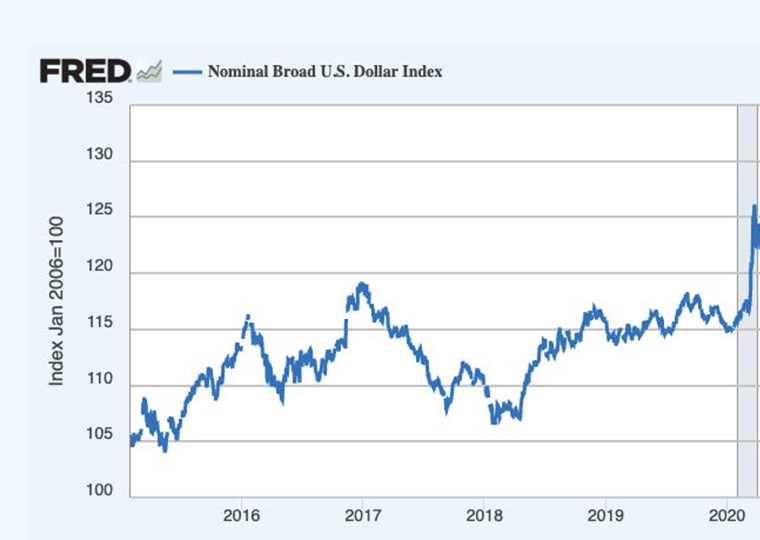The rise of passive investing leaves companies mistrusting market signals on how best to deploy capital
Corporate managers are supposed to run their businesses partly based on the signals they get from the stock market. But what if the market’s signals are badly distorted?
That’s the focus of new research by Constantinos Antoniou of the University of Warwick, UCLA Anderson’s Avanidhar Subrahmanyam and Onur Kemal Tosun, also of Warwick. They looked at whether companies’ investment-spending decisions — that is, how best to put shareholders’ capital to use — are affected by the growing prominence of exchange-traded funds.
ETFs have soared in popularity since 2000, in part riding the wave of interest in passive, or index, investing. Most ETFs invest in individual industry sectors, such as technology, steel or retailing. They give investors an easy way to bet on entire sectors, rather than try to pick the best stock in a sector. As such, ETFs own stocks simply because they’re in a particular industry; the funds don’t research companies’ individual prospects.
Opt In to the Review Monthly Email Update.
Citing other academic research on ETFs’ influence, the authors start with the premise that ETFs’ passive approach reduces the “pricing efficiency” of individual stocks they own — meaning that share prices are either higher or lower than they would be if ETFs paid attention to the companies’ fundamentals.
In an efficient market, a stock’s price at any moment reflects the collective wisdom of all investors. That wisdom could include information that sophisticated investors have learned about an industry even before some companies in the industry are aware of it. So a stock’s price action can help a company’s managers see what’s ahead for their business, and help steer managers to make the smartest investment moves with shareholders’ capital.
But if knowledgeable investors in a stock are crowded out by passive ETFs, the stock’s price might send the wrong messages. Like a watchdog that barks at the wrong things.
“Specifically, we hypothesize that since ETF ownership makes stock prices more volatile and less informative, it adversely affects the ability of managers to learn about the prospects of their firms from stock prices,” the study says. In turn, that can muddle decision making about how to deploy resources — for example, whether to build a new plant or instead pay shareholders a bigger dividend.
To confirm their theory, Antoniou, Subrahmanyam and Tosun studied a broad sampling of U.S. companies from 2000 to 2014, and weighed the level of ETF ownership against key measures of corporate investment, including capital spending and research and development. They also studied companies’ dividend payment decisions.
The authors used the Tobin Q ratio as a key reference point. Popularized by the economist James Tobin in the 1970s, the Q basically measures the stock market value of a company (how investors price the shares) relative to the value of the company’s assets, which theoretically is the cost of creating the business from scratch. So the higher the Q ratio, the higher investors’ valuation of a company, compared with the cost to replace it.
If the market has good intelligence about a company, a high Q ratio would suggest that managers should reinvest heavily in the business because investors are signaling a bright future. But the authors conclude that “ETF ownership adversely impacts the relationship between [stock] prices and corporate policies,” such as capital allocation. “Since the stock prices of firms highly owned by ETFs are less informative, managers will rely less on them when making real investment decisions,” the study says.
One effect is to increase companies’ willingness to give cash back to shareholders rather than spend it, the study says: “We find that dividends are more sensitive to prices when ETF ownership is high, which suggests that the diminished ability of managers to learn from prices makes them more likely to pay out dividends” instead of reinvesting in the business.
Of course, shareholders may appreciate richer dividends. But if a company is fearful that its high Q ratio is distorted by ETFs — and opts to ignore its Q as a signal to reinvest in the business — it could be forgoing significant growth opportunities, the authors say. High ETF ownership companies thus may be trapped into following “suboptimal” business policies, “which may be detrimental to future operating performance,” the study says.
Featured Faculty
-
Avanidhar Subrahmanyam
Distinguished Professor of Finance; Goldyne and Irwin Hearsh Chair in Money and Banking
About the Research
Antoniou, C., Subrahmanyam, A., & Tosun, O.K. (2018). ETF ownership and corporate investment.






